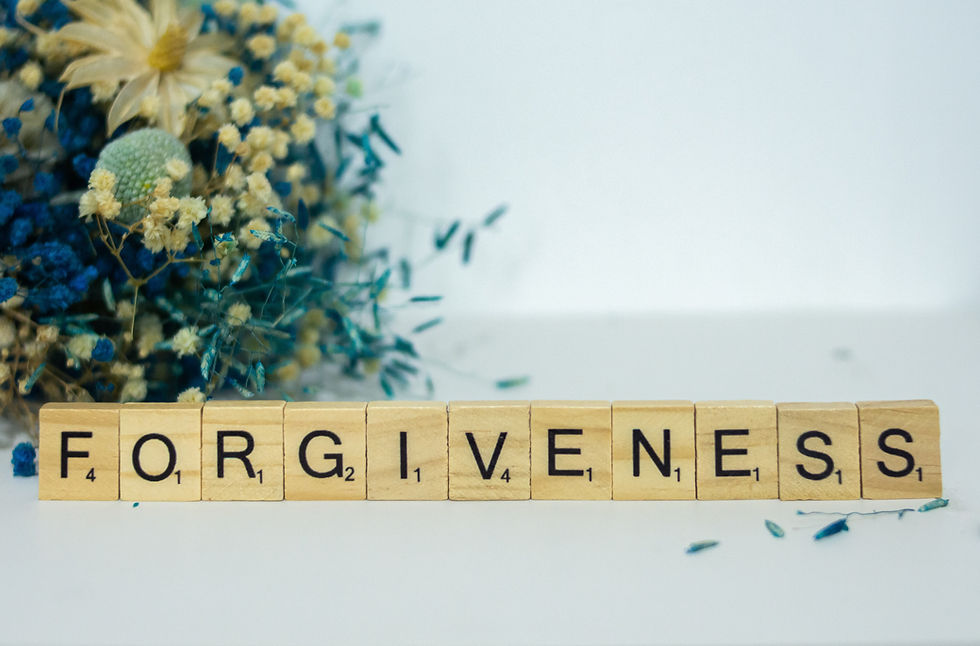Understanding Forgiveness: A Pathway to Healing and Freedom
- Alexxis Rose
- Feb 7, 2024
- 2 min read

Forgiveness is deeply ingrained in the fabric of human relationships and personal growth. It is a multifaceted phenomenon that transcends mere pardon or absolution, offering profound emotional, psychological, and spiritual benefits. Defined by its complexity, forgiveness is often misunderstood and misinterpreted. This blog delves into forgiveness's essence, meaning, significance, and transformative power.
Defining Forgiveness
Forgiveness is a process where someone who has been wronged chooses to let go of their resentment, anger, and desire for revenge towards someone who has wronged or hurt them. It involves releasing negative emotions and granting oneself the freedom to heal and move forward. However, forgiveness does not imply forgetting or condoning the offense. Instead, it acknowledges the pain while choosing to transcend it.

The Significance of Forgiveness
Forgiveness is not merely a moral virtue but a powerful personal liberation and healing tool. By forgiving others, we liberate ourselves from bitterness and resentment that weigh down our spirits. Holding onto grudges only perpetuates suffering, trapping us in a cycle of negativity and emotional turmoil.
Forgiveness is also a cornerstone of healthy relationships. It fosters empathy, compassion, and understanding, creating space for reconciliation and growth. Without forgiveness, relationships stagnate, poisoned by unresolved conflicts and lingering animosity.
The Four Phases of Forgiveness

Forgiveness is a process, not a one-time event. Simply just saying "I forgive you" or accepting an apology is not forgiveness. Forgiveness unfolds gradually, requiring introspection, empathy, and courage. The phases of forgiveness typically involve several vital stages:
The Uncovering Phase: During the first phase, you will improve your understanding of the injustice and its impact on your life.
The Decision Phase: During the second phase, you will gain a deeper understanding of forgiveness and decide to choose or reject forgiveness as an option.
The Work Phase: During the third phase, you will start to understand the offender in a new way, which will allow positive feelings toward the offender and yourself.
The Deepening Phase: During the final phase of forgiveness, you will decrease the negative emotions associated with the injustice. You may find meaning in the experiences and recognize how you have grown.
Conclusion
In essence, forgiveness is a profound act of grace and courage. It is a gift we give ourselves, allowing us to break free from resentment and reclaim our inner peace. By embracing forgiveness, we open ourselves to the transformative power of healing, reconciliation, and spiritual growth. Forgiveness offers a beacon of hope in a world fraught with conflict and division, reminding us of our capacity for empathy, understanding, and love.






댓글